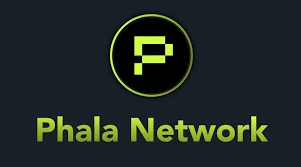Phala Network PHA: Privacy-Preserving Cloud on Blockchain
Table of Contents

Data privacy is a major concern in Web3 and decentralized applications. Phala Network (PHA) addresses this by combining blockchain with Trusted Execution Environments (TEEs) to create a privacy-first cloud computing protocol. Developers can build dApps, AI tools, and DeFi solutions without compromising sensitive user data.
PHA token holders participate in governance, staking, and accessing confidential computation services. With interoperability across multiple blockchains and a focus on confidential smart contracts, Phala is carving out a niche in secure, decentralized cloud computing. This article explores Phala Network’s architecture, tokenomics, core features, use cases, and roadmap, providing a comprehensive guide for crypto enthusiasts, developers, and investors looking to leverage private computation in Web3.
For more insights and updates on the latest trends in cryptocurrency, be sure to check out our Nifty Finances platform, which serves as your gateway to smarter financial decisions in the digital economy.

What is Phala Network?
Phala Network is a decentralized cloud computing platform designed to provide privacy-preserving and confidential computation for the blockchain ecosystem. Built with a strong emphasis on security, confidentiality, and scalability, Phala Network enables developers and enterprises to deploy decentralized applications (dApps) that require secure handling of sensitive data. By leveraging advanced technologies such as Trusted Execution Environments (TEEs), Phala ensures that computations are performed in a confidential and tamper-proof manner while maintaining transparency and decentralization.
Integration with Polkadot and Multi-Chain Ecosystems
Phala Network is a Parachain within the Polkadot ecosystem, benefiting from Polkadot’s shared security, interoperability, and scalable architecture. This integration allows Phala to interact seamlessly with other parachains and external blockchains, expanding the potential use cases for confidential computation.
- Cross-Chain Compatibility: Phala supports multi-chain operations, enabling developers to leverage confidential computing for applications across various blockchain networks.
- Interoperable dApps: By connecting to Polkadot and beyond, Phala allows decentralized applications to securely share and process data across ecosystems without compromising user privacy.
This multi-chain approach ensures that developers are not restricted to a single blockchain, fostering a broader and more connected privacy-preserving ecosystem.
Trusted Execution Environments (TEEs) for Confidential Computing
At the core of Phala Network’s architecture are Trusted Execution Environments (TEEs). TEEs are secure areas of a processor that execute code in isolation from the host system, ensuring that data remains private and computations cannot be tampered with.
- Data Confidentiality: TEEs ensure that sensitive information, such as user credentials or private transaction data, is processed securely without exposure.
- Secure Smart Contracts: Developers can deploy privacy-preserving smart contracts where input data and execution results remain confidential while still being verifiable by the network.
- Tamper-Proof Execution: TEEs guarantee that computations are accurate and have not been altered, maintaining trust and integrity for sensitive applications.
This level of confidentiality is particularly valuable for financial, healthcare, and enterprise applications, where sensitive data handling is critical.
Focus on Privacy-Preserving dApps and DeFi
Phala Network targets a variety of use cases that require privacy-focused computing, with a particular emphasis on decentralized finance (DeFi) and sensitive applications:
- Privacy-Preserving DeFi: Users can execute DeFi operations without revealing sensitive financial data to third parties, protecting assets and trading strategies.
- Confidential Data Services: Enterprises can deploy applications that require private computations, such as analytics, AI model training, and multi-party computations.
- User-Centric Privacy: By combining decentralization and TEEs, Phala ensures that end users retain full control over their data, minimizing risks of leaks or misuse.
Phala Network stands at the intersection of decentralization, privacy, and cloud computing, offering a platform where secure, confidential computations can be performed across multiple blockchains. Its integration with the Polkadot ecosystem, use of Trusted Execution Environments, and focus on privacy-preserving dApps and DeFi applications make it a pioneering solution for developers and enterprises that value confidentiality and security. With Phala, sensitive data no longer needs to compromise transparency or decentralization, establishing a new standard for privacy in the Web3 ecosystem.

Key Features of Phala Network
Phala Network is a privacy-focused decentralized cloud computing platform that provides robust tools and infrastructure for building secure, confidential, and scalable applications. Its design centers around confidentiality, interoperability, and usability, offering developers and enterprises the ability to deploy privacy-preserving solutions without compromising performance or flexibility. Below are the core features that make Phala Network a standout platform in the Web3 ecosystem.
Trusted Execution Environments (TEEs) for Secure Computation
At the heart of Phala Network are Trusted Execution Environments (TEEs), which ensure secure and confidential execution of code:
- Data Privacy: TEEs isolate computations from the host environment, preventing exposure of sensitive information during execution.
- Tamper-Proof Processing: Operations inside TEEs are protected from external interference, ensuring the integrity and correctness of computation.
- Confidential Smart Contracts: Developers can build privacy-preserving smart contracts where inputs and outputs remain confidential while still being verifiable by the network.
By leveraging TEEs, Phala allows applications to process sensitive data such as financial information, personal identifiers, or AI models in a fully secure environment.
Cross-Chain Interoperability
Phala Network is built as a Polkadot parachain, enabling seamless interoperability with other blockchain networks:
- Multi-Chain Integration: Developers can connect dApps to multiple blockchains, increasing flexibility and market reach.
- Interoperable DeFi and dApps: Confidential applications can interact with external ecosystems without compromising security or privacy.
- Shared Security: Through Polkadot, Phala benefits from robust cross-chain security, ensuring safe interactions with other parachains.
This cross-chain capability allows Phala to bridge privacy-focused computation with the broader blockchain ecosystem, making it ideal for complex decentralized applications.
Developer-Friendly Tools
Phala Network provides comprehensive development resources for building and deploying privacy-centric applications:
- SDKs and APIs: Developers can quickly integrate confidential computing capabilities into existing or new projects.
- Smart Contract Support: Phala enables the deployment of privacy-preserving smart contracts that leverage TEEs for secure execution.
- Documentation and Tutorials: Extensive resources help developers understand best practices in confidential computing and secure dApp deployment.
These tools significantly reduce barriers to entry, allowing developers to focus on innovation without worrying about underlying privacy infrastructure.
Real-World Applications
Phala Network’s features support a wide range of privacy-focused, real-world use cases:
- Confidential AI Processing: Train and deploy AI models on sensitive data without exposing the information to third parties.
- Secure Data Analytics: Perform analytics on encrypted datasets while preserving confidentiality, ideal for enterprises and researchers.
- Privacy-Preserving DeFi: Execute financial transactions and DeFi protocols where user data, trading strategies, and balances remain confidential.
- Enterprise Applications: Businesses can build solutions requiring secure computation, such as private auctions, voting systems, or health data management.
These applications demonstrate Phala’s commitment to real-world usability, making it a versatile platform for developers, enterprises, and users concerned about privacy.
Phala Network combines trusted execution environments, cross-chain interoperability, developer-friendly tools, and real-world applications to provide a cutting-edge platform for secure and confidential computation. By enabling privacy-preserving dApps, DeFi protocols, and enterprise solutions, Phala empowers developers and users alike to leverage blockchain technology without compromising data security, setting a new standard for privacy and trust in the Web3 ecosystem.

How Phala Network Works
Phala Network is a privacy-focused decentralized cloud computing platform that combines blockchain technology with Trusted Execution Environments (TEEs) to enable secure and confidential computations. Its architecture is designed to allow developers to deploy privacy-preserving applications while ensuring users maintain control over their sensitive data.
Architecture: Computation, Blockchain, and TEE Layers
Phala Network operates through a three-layer architecture that ensures security, scalability, and privacy:
- Computation Layer:
- This layer handles all off-chain computations and executes confidential tasks.
- TEEs process user data in a secure, isolated environment, ensuring sensitive information is never exposed to unauthorized parties.
- Complex operations, such as AI model training or encrypted analytics, are performed efficiently without sacrificing privacy.
- Blockchain Layer:
- Phala functions as a Polkadot parachain, providing decentralized governance, shared security, and interoperability with other blockchains.
- It records verification proofs and smart contract execution results while keeping the actual input data confidential.
- The blockchain layer ensures transparency and accountability without compromising user privacy.
- TEE Layer:
- TEEs act as secure enclaves that isolate computation from the host system.
- This layer guarantees tamper-proof execution, protecting both the code and data during processing.
- TEEs allow developers to create confidential smart contracts where the inputs, outputs, and intermediate computations remain private.
This layered structure enables Phala to combine the best of decentralization and privacy for secure cloud computing applications.
Deploying Confidential dApps
Developers can build privacy-preserving applications using Phala Network’s developer-friendly tools:
- SDKs and APIs: Simplify the process of integrating confidential computing capabilities into dApps.
- Smart Contracts: Developers can deploy confidential contracts that execute in TEEs, ensuring sensitive data is protected.
- Cross-Chain Integration: dApps can interact with other blockchain networks while maintaining confidentiality, expanding potential use cases.
This architecture empowers developers to create secure, decentralized applications without needing deep expertise in cryptography or privacy technologies.
User Interaction and Data Privacy
Phala Network ensures users retain full control over their data while interacting with dApps:
- Privacy-Preserving Interfaces: Users can submit data to dApps without exposing it publicly on the blockchain.
- Secure Computation: TEEs guarantee that computations are performed privately, preventing data leaks or unauthorized access.
- Confidential Transactions: Users can engage in DeFi operations or other sensitive activities without revealing balances, strategies, or inputs.
By combining usability with privacy, Phala allows users to participate safely in decentralized applications and financial systems.
Security Measures and Verification
Phala Network employs multiple security layers to maintain trust and integrity:
- TEE Verification: Remote attestation confirms that computations are executed inside genuine TEEs.
- Blockchain Proofs: Verification proofs are stored on-chain, allowing the network to audit computation results without exposing sensitive data.
- Decentralized Validation: Multiple nodes verify and validate execution outcomes, ensuring consistency and tamper-resistance.
These measures provide a robust, confidential, and auditable computing environment suitable for a wide range of applications, from enterprise analytics to privacy-focused DeFi.
Phala Network works by combining blockchain, TEEs, and developer tools to create a secure, privacy-preserving ecosystem. Developers can deploy confidential dApps with ease, while users interact safely without compromising sensitive data. With layered architecture, secure computation, and verification processes, Phala provides a trusted infrastructure for privacy-focused applications in the rapidly evolving Web3 ecosystem.
How to Get Started with Phala Network
Phala Network is a privacy-focused decentralized cloud computing platform that allows users to participate in a secure, privacy-preserving ecosystem. To fully engage with Phala, users need to understand how to acquire PHA tokens, set up wallets, participate in staking, and interact with Phala-enabled dApps and services.
Acquiring PHA Tokens
PHA is the native utility token of Phala Network, used for staking, governance, and interacting with Phala-enabled applications. Acquiring PHA tokens is the first step for users who want to engage with the ecosystem:
- Exchanges: PHA tokens are available on major cryptocurrency exchanges. Users can purchase PHA using Bitcoin, Ethereum, or stablecoins. Examples include centralized exchanges (CEXs) like Binance and KuCoin, as well as decentralized exchanges (DEXs) that support Polkadot-based assets.
- Bridging Assets: For users operating on other blockchains, PHA can be bridged from supported networks to Phala’s Polkadot parachain, allowing seamless integration across ecosystems.
- Participation Programs: Early adopters may access PHA through community programs, airdrops, or staking rewards on Phala-enabled platforms.
Acquiring PHA tokens opens access to the network’s full range of functionalities, including staking, governance, and privacy-preserving computations.
Wallets Supporting PHA
To securely store and interact with PHA tokens, users need a compatible cryptocurrency wallet:
- Polkadot-Compatible Wallets: Wallets like Polkadot.js, Fearless Wallet, and MathWallet support PHA tokens and can connect directly to the Phala Network.
- Hardware Wallets: For added security, users can store PHA on hardware wallets such as Ledger or Trezor, which provide offline protection against hacks.
- Wallet Features: These wallets allow users to send, receive, stake, and manage PHA tokens while maintaining full control over private keys.
Setting up a secure wallet is essential to safely participate in the Phala ecosystem.
Staking PHA for Rewards and Governance
Phala Network incentivizes active participation through staking programs:
- Staking for Rewards: Users can lock PHA tokens in the network to earn staking rewards. These rewards are distributed as additional PHA tokens, providing a passive income stream.
- Governance Participation: Staking PHA also enables users to participate in governance, such as voting on network proposals, protocol upgrades, and key ecosystem decisions.
- Node Operation: Advanced users can operate validator or collator nodes, securing the network and receiving staking rewards in return.
Staking not only provides financial incentives but also strengthens the network’s security and decentralization.
Using Phala-Enabled dApps and Services
Once users have acquired and staked PHA, they can engage with Phala-enabled decentralized applications:
- Confidential dApps: Interact with privacy-preserving applications, such as confidential DeFi platforms, secure data analytics tools, and AI-powered services.
- Enterprise Solutions: Businesses can deploy confidential smart contracts and data services while maintaining compliance with privacy regulations.
- Ecosystem Participation: Users can submit tasks, provide computational resources, or participate in multi-party computations, all while retaining data confidentiality.
These applications showcase the real-world potential of Phala Network in enabling secure, decentralized, and privacy-preserving services.
Getting started with Phala Network involves acquiring PHA tokens, setting up a secure wallet, participating in staking and governance, and exploring privacy-focused dApps. By following these steps, users can fully engage with Phala’s ecosystem, benefit from token incentives, and contribute to the growth of a secure and confidential Web3 computing network. Phala provides the tools and infrastructure necessary for users and developers to interact with blockchain technology while maintaining privacy, security, and control over sensitive data.
Use Cases & Real-World Applications of Phala Network
Phala Network is a privacy-focused decentralized cloud computing platform designed to enable secure and confidential computation on the blockchain. By combining Trusted Execution Environments (TEEs) with decentralized infrastructure, Phala allows developers, enterprises, and users to leverage blockchain technology without compromising data privacy. Its architecture supports a variety of real-world applications, spanning AI, analytics, DeFi, and enterprise solutions.
Confidential AI Training and Inference
Phala Network is particularly well-suited for AI applications that require privacy:
- Secure Model Training: Sensitive datasets, such as financial records, medical information, or proprietary corporate data, can be used to train AI models without exposing the underlying data.
- Confidential Inference: Predictions and analytics generated by AI models can be performed in TEEs, ensuring that both input and output data remain private.
- Collaborative AI: Multiple parties can contribute data to a model securely, enabling federated learning scenarios where participants benefit from shared intelligence while maintaining data confidentiality.
This approach is ideal for industries like healthcare, finance, and research, where data sensitivity is critical.
Privacy-Preserving Analytics for Businesses and Individuals
Phala’s confidential computation capabilities allow businesses and individuals to analyze data securely:
- Enterprise Analytics: Companies can process sensitive operational or customer data without risking leaks, enabling data-driven decisions in a safe environment.
- User-Controlled Data: Individuals can participate in analytics or surveys while maintaining ownership and control over their personal information.
- Compliance-Friendly: Phala’s privacy-preserving architecture helps organizations comply with regulations such as GDPR or HIPAA by limiting exposure of personally identifiable information (PII).
This creates opportunities for businesses to unlock actionable insights without sacrificing trust or privacy.
DeFi and Decentralized Apps Requiring Secure Computation
Decentralized finance (DeFi) and other blockchain applications can leverage Phala for confidential and tamper-proof computations:
- Private DeFi Transactions: Users can execute swaps, lending, or trading strategies without revealing balances or transaction details publicly.
- Confidential Smart Contracts: Phala-enabled contracts can compute sensitive operations while preserving privacy for all participants.
- Cross-Chain Integration: DeFi protocols can interact securely with other blockchains while keeping computation confidential, expanding interoperability without compromising security.
This makes Phala a key infrastructure layer for next-generation privacy-focused blockchain applications.
Enterprise Adoption and Potential Government Applications
Beyond DeFi and AI, Phala Network is suited for enterprise and government use cases that require confidential computation:
- Secure Multi-Party Computation: Organizations can collaborate on sensitive projects, such as joint research or audits, without exposing private data.
- Voting and Governance: Government or corporate voting systems can utilize Phala for tamper-proof and privacy-preserving elections.
- Regulatory Compliance: Enterprises handling sensitive client data can leverage Phala to meet compliance standards while enabling decentralized and transparent operations.
By providing confidential, verifiable, and decentralized computing, Phala bridges the gap between blockchain technology and real-world enterprise needs.
Phala Network offers a versatile infrastructure for confidential AI, privacy-preserving analytics, secure DeFi, and enterprise applications. By leveraging TEEs and decentralized computation, it enables developers, businesses, and governments to build solutions that protect sensitive data while remaining verifiable and decentralized. These real-world use cases demonstrate Phala’s potential to redefine how privacy and security are integrated into blockchain applications, making it a pioneering platform for privacy-preserving Web3 technologies.